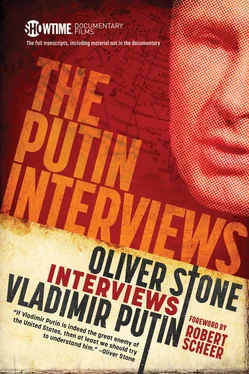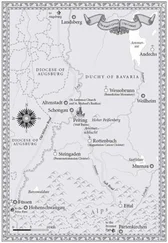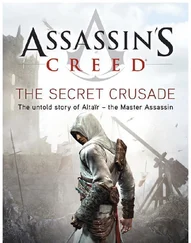OS:Any more news developments that you can reveal on the US/NATO exercises on the Russian borders in their war games? Has there been any change of strategy, for example, in Poland?
VP:Well, I would say no. This has more of a psychological effect than a military effect per se. Militarily this is of no concern to us. But it undermines trust in the political process that would allow us to work together, certainly that is not a good thing that we’re seeing—this is doing damage to our relations.
OS:Interesting.
ON SYRIA AND DEFENSE
OS:Can we quickly get back—in the matter of Syria, it seems to have quieted down. The showing of Aleppo was much-played-up in the Western media as barbaric. And I’ve seen the RT reports from a different perspective about what was happening there in West Aleppo—a different sense of, where the US media was not reporting some of the atrocities that were happening in Aleppo.
VP:You know, this is all part of an information confrontation. Certainly the media are used. If they present lopsided information, they discredit themselves in the end. In any case, when a question arises inevitably, if people are taken hostage by terrorists does it mean that we have to stop fighting terrorists? Should we just give them a blank check to do whatever they please? The question always arises—is the source of this evil the ones who fight terrorists or the terrorists themselves? Just have a look—there has been much talk about the need to provide immediate humanitarian aid to Aleppo. Right now, Aleppo has been liberated of terrorists. And no one talks right now about the need to provide humanitarian aid to Aleppo, even though security and safety have been ensured there. Many partners of mine, my colleagues were telling me that they were willing, they were ready to provide that kind of humanitarian aid, but so far nothing has happened. There were always those who said that we would be in conflict with the Sunni world sooner or later. I think this is, to me, a provocation. Many in the Arab world, and in Turkey, they do understand what our intentions are. There are those who disagree with that. But our position is clear. Our goal is to support the legitimate authorities, to prevent a disintegration of the Syrian statehood, otherwise this territory is going to be yet another Libya or worse. Or another Somalia. Secondly, our goal is to fight terrorism. And this is no less important to us. Just as I said, according to our data, 4,500 people from Russia and around 5,000 citizens from Central Asian countries—the former Soviet republics—are fighting there. And our task is to prevent them from coming home. Nonetheless, it is with respect that we treat the concerns of our partners from Turkey and from the Arab countries. What did it result in? First, at the final stage of the fight for liberating Aleppo, this stage didn’t end with hostilities. No, it ended with separating the forces. And we helped part of the armed opposition to evacuate from Aleppo. And we were the ones to facilitate this process. We were the ones to organize all of that. But everyone just made it look like they didn’t see what was happening. Secondly there were talks that once Aleppo was liberated, ethnic or religious cleansings would take place there. Do you know what decision I took? I decided to dispatch a battalion of Russia military police to Aleppo, from the Northern Caucasus, mostly from the Chechen Republic [176] Background Information: See, “Chechen soldiers among Russian military police in Aleppo to ‘ease interaction with locals,’” RTNews (January 30, 2017). Retrieved at: https://www.rt.com/news/375551-chechen-soldiers-patrolling-aleppo/
and a number of other republics in the Northern Caucasus. Incidentally, all of them are Sunni.
OS:[laughter] I see.
VP:And the local population gave them a very warm welcome. They see them as their protectors. Certainly we did that with the concern and with the support of President Assad. He said he was interested in fostering a dialogue between different religious groups. Do you know what it led to? I’m going to tell you something that no one is aware of so far, but probably they are going to learn that before your film appears. The representatives of the armed opposition in one of the suburbs of Aleppo asked us to increase the number of our military policemen. They want us to bring this number to a great number in the regions they control.
A week ago I decided to dispatch another battalion of military police there. But this is not all there is to it. Together with our military police, a Mufti from the Chechen Republic has appeared there.
He is also a Sunni. He talks to our military, to the local population. We’re not interested in adding fuel to this conflict. Quite the contrary, we are interested in fostering dialogue, so as to preserve the territorial integrity of this country which is a very complicated matter. I’m particularly concerned about what we are witnessing. We see some sort of a divide of different religious groups. People are moving from one part of Syria to another. These religious groups are isolating themselves and separating, and this is very dangerous because it might result in a split. But I’ve got to tell you that we are successful because we’ve got the direct support of the Turkish leadership, as well as the leadership of Iran. This is a very difficult matter and it’s not always easy to find consensus. But direct contacts are being upheld with the Iranian partners and the Turkish partners, and this is what gives us hope and that is why we achieve success. What you’ve said about Syria quieting down, that is true. Indeed, hostilities have all but ceased between the armed opposition and the armed forces of the government. But hostilities are still ongoing against Daesh, the Islamic State.
OS:What would you say is the result of the Russian military intervention—in a few words?
VP:I can sum that up very easily. First, we’ve stabilized the legitimate authorities. Secondly, we have achieved a reconciliation and we’ve managed to bring to one negotiating table both the Armed opposition and the government. And we’ve managed to foster a dialogue in a trilateral format which engages both Turkey and Iran. We need the support of the United States as well as the support of Saudi Arabia, Jordan, Egypt. We’re going to tread very cautiously. So that each step secures what has been achieved at the previous step instead of undermining it.
OS:Again, what was the distance between Damascus and Moscow. You told me once it was kilometers…
VP:Well I never counted. I think 3,000. 2,000 to Sochi, another thousand to Istanbul. 3,500 or 4,000 kilometers. [177] Confirmation: The distance from Moscow to Damascus is 3,170 km by auto, 2,476 km by plane.
OS:Okay. And one quick question. I mean, I definitely get the feeling from what you said that Mr. Erdogan in Turkey feels that the US CIA was involved in the coup d’état against him recently.
VP:Did he tell you that?
OS:No. He said things that hinted at it—in that direction.
VP:I don’t know anything about that. But I can see the rationale behind what he said. Mr. Gülen, whom he suspects of organizing this coup d’état, is living in Pennsylvania [178] Background Information: See, “Fethullah Gülen: who is the man Turkey’s president blames for coup attempt?” Peter Beaumont, The Guardian July 16, 2016. Retrieved at: https://www.theguardian.com/world/2016/jul/16/fethullah-gulen-who-is-the-man-blamed-by-turkeys-president-for-coup-attempt
and he’s lived there for more than nine years.
Читать дальше












